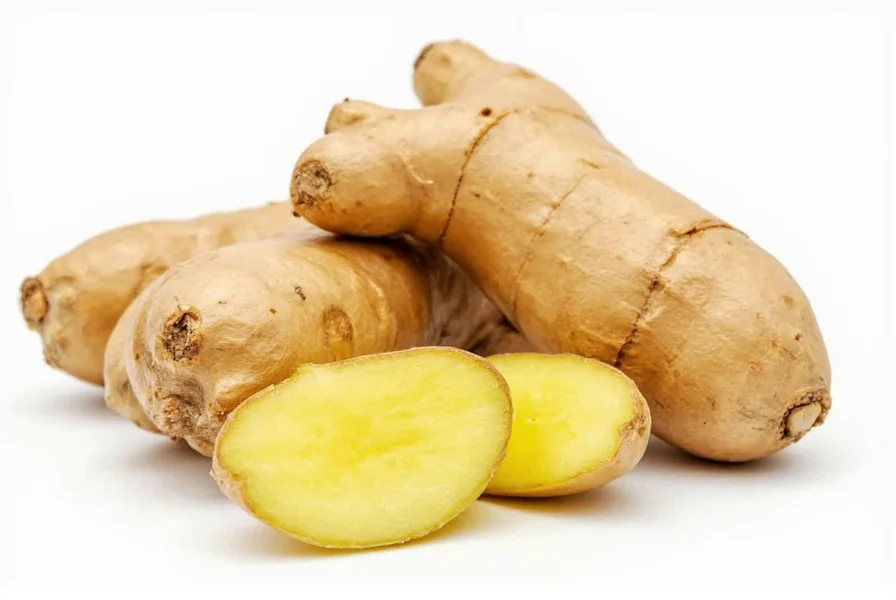Ginger root has been used for centuries as both a culinary spice and medicinal herb, valued for its anti-inflammatory properties and digestive benefits. While generally considered safe, understanding potential side effects is crucial for informed consumption, especially for individuals with pre-existing health conditions or those taking medications.
Common Side Effects of Ginger Root
Most people experience no adverse effects when consuming ginger in typical culinary amounts. However, some individuals may notice mild reactions:
- Digestive discomfort: Heartburn, stomach upset, or diarrhea may occur, particularly with higher doses
- Oral irritation: Some report a temporary burning sensation in the mouth
- Skin reactions: Topical application can cause contact dermatitis in sensitive individuals
These mild side effects of ginger consumption typically resolve when intake is reduced or discontinued. A 2020 review published in the Journal of Food Science and Technology noted that gastrointestinal symptoms were the most frequently reported issues, affecting approximately 3-5% of users in clinical studies.

Less Common but Potentially Serious Side Effects
While rare, certain adverse reactions to ginger root supplements warrant attention:
| Side Effect | Frequency | At-Risk Population |
|---|---|---|
| Increased bleeding risk | Rare | Those on anticoagulants |
| Blood pressure changes | Occasional | Individuals with hypertension |
| Allergic reactions | Very rare | People with ginger allergy |
| Gallstone complications | Occasional | Those with gallstones |
Who Should Exercise Caution with Ginger?
Certain populations should consult healthcare providers before regular ginger consumption:
Pregnant Women
While ginger is commonly used to alleviate morning sickness, high doses (exceeding 1 gram daily) may potentially affect fetal development. The American College of Obstetricians and Gynecologists considers ginger possibly safe for pregnancy-related nausea but recommends medical consultation before regular use.
Individuals Taking Medications
Ginger root interactions with blood thinners represent the most significant concern. Ginger contains compounds that may enhance the effects of:
- Warfarin and other anticoagulants
- Antiplatelet medications like aspirin
- Diabetes medications (may lower blood sugar excessively)
- Blood pressure medications (may cause hypotension)
Those managing ginger root side effects while on medication should work with their healthcare provider to determine safe consumption levels.
People with Medical Conditions
Individuals with certain health conditions should exercise caution:
- Gallstone disease: Ginger may increase bile production, potentially worsening symptoms
- Bleeding disorders: Due to potential blood-thinning effects
- Heart conditions: May interact with cardiac medications
- Diabetes: May enhance blood sugar-lowering effects of medications

Safe Consumption Guidelines
Following evidence-based recommendations can minimize the risk of negative effects of ginger root:
- Daily limit: Up to 4 grams of raw ginger or equivalent supplements
- Pregnancy limit: No more than 1 gram daily without medical supervision
- Medication users: Consult healthcare provider before regular use
- First-time users: Start with small amounts to assess tolerance
The World Health Organization recommends not exceeding 2 grams of ginger daily for medicinal purposes. For culinary use, typical amounts in cooking (0.25-1 gram per serving) rarely cause issues.
When to Seek Medical Advice
Contact a healthcare professional if you experience:
- Persistent heartburn or digestive issues lasting more than 48 hours
- Unexplained bruising or bleeding
- Significant changes in blood sugar levels
- Severe allergic reactions (rash, swelling, difficulty breathing)
- Worsening of pre-existing medical conditions
Those monitoring ginger root side effects during pregnancy should report any unusual symptoms to their obstetric provider immediately.
Conclusion: Balancing Benefits and Risks
Ginger root offers numerous health benefits with relatively few side effects when consumed responsibly. Most adverse reactions occur only with excessive consumption or in sensitive populations. By understanding your personal health status, following recommended dosage guidelines, and consulting healthcare providers when necessary, you can safely enjoy ginger's therapeutic properties while minimizing potential risks. The key is moderation and awareness of how ginger might interact with your specific health circumstances.
Frequently Asked Questions
Can ginger root cause heartburn?
Yes, ginger root can cause heartburn in some individuals, particularly when consumed in larger amounts. This common side effect of ginger consumption occurs because ginger may relax the lower esophageal sphincter, allowing stomach acid to flow back into the esophagus. Those prone to acid reflux may want to limit ginger intake or consume it with food to minimize this effect.
Is ginger safe to take with blood thinners?
Ginger may interact with blood-thinning medications like warfarin, increasing the risk of bleeding. The compounds in ginger have mild anticoagulant properties that can enhance the effects of these medications. If you're taking blood thinners, consult your healthcare provider before using ginger supplements or consuming large amounts regularly. Monitoring your INR levels may be necessary if you continue ginger consumption.
How much ginger is too much per day?
The maximum recommended daily intake of ginger is 4 grams for most adults. This includes all forms—fresh, dried, supplements, and extracts. For pregnant women, experts generally recommend not exceeding 1 gram daily without medical supervision. Consuming more than these amounts increases the likelihood of experiencing adverse effects of ginger root, particularly digestive issues and potential interactions with medications.
Can ginger cause allergic reactions?
Yes, though rare, some people can experience allergic reactions to ginger root. Symptoms may include skin rash, itching, swelling, or difficulty breathing. Those with allergies to related plants in the Zingiberaceae family (like cardamom or turmeric) may be at higher risk. If you experience signs of an allergic reaction after consuming ginger, discontinue use immediately and seek medical attention if symptoms are severe.
Does ginger affect blood sugar levels?
Ginger may lower blood sugar levels, which can be beneficial for some but problematic for others. People with diabetes taking medication should monitor their blood sugar closely when consuming ginger, as it may enhance the effects of diabetes medications and lead to hypoglycemia. If you have diabetes, discuss ginger consumption with your healthcare provider to ensure it won't interfere with your blood sugar management.











 浙公网安备
33010002000092号
浙公网安备
33010002000092号 浙B2-20120091-4
浙B2-20120091-4